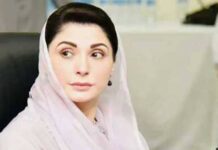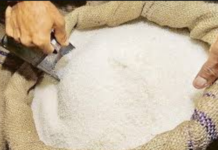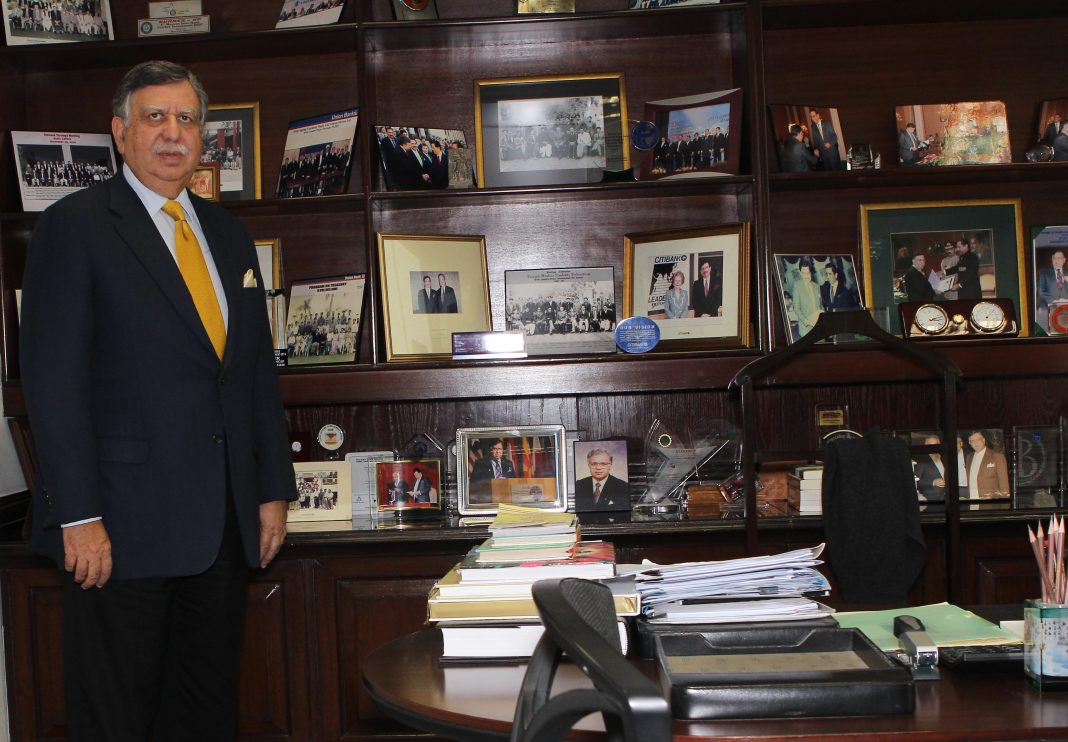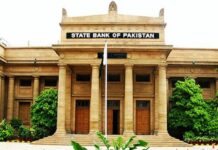The career of a banker typically starts from an entry level position and consists of many shifts that include working at a variety of banks both local and international, small and big. The last stop is heading a bank as president and retiring. Shaukat Tarin however is a rarity who has done all that and much more.
Apart from being an excellent banker probably his greatest ability is the capacity to lead from the front and turn around institutions that are in trouble. He did it with HBL as its president back in 1997, then in 2000 he built Union Bank from scratch only to sell it to Standard Chartered Bank for a very decent profit.
He later joined politics and went on to become the Finance Minister of Pakistan but had to give it up to raise equity for his own venture, Silk Bank, formerly Saudi-Pak Commercial Bank. Silk Bank has not had an easy run but recent financials show that Tarin has turned it around as well and made it profitable.
Profit: How would you describe the tenure when you were Finance Minister?
ST: When I took over the political scenario changed and the new civilian government came in, economically you had oil and gas at $144 a barrel, commodity prices had really gone up and Pakistan, because of election consideration, had not passed on the increase in prices in 2006-07 and early 2008 to consumers.
There was major pressure on our balance of payments (BOP) and current account. Foreign Exchange Reserves were at a paltry $5 – 6 billion of which bulk was with Commercial Banks and depleting by the day. I was approached by the then government September of 2008 to come in and rescue the economy.
We were left with only a couple of weeks of reserves, our inflation was very high at around 22-23 per cent. The fiscal deficit was around 7.6 per cent with a current account deficit of 8.2 per cent. It truly was a crisis situation and they needed somebody who was strong and could take decisions.
These were the circumstances under which I joined although I did not want to join the government because I am not cut for politics because as in politics you have to make a lot of compromises. I have lived a very clean life and did not want to jeopardise my reputation. But they told me that if economy tanks, your bank will also tank, so you might as well save the economy to save your bank.
Q2) Since the interest rate has started to come down and margins begun to squeeze, has it affected the banking industry by much? And has the State Bank put a limit on the spread?
ST: I think this is a notional limit, but the limit is actually there because the discount rate has come down, so what you charge to the customer has also come down and at the end of the day you have to pay something to the depositor, so there the State Bank has put a floor of 4 per cent, which further depresses the spreads.
So what that means is that your spreads due to compression have come down and of course the customer will not like to pay more than he should, which is KIBOR plus whatever.
Another aspect of this is that the government has been borrowing heavily in the past several years and banks have become used to just investing in the government paper especially the long term paper (Pakistan Investment Bonds, 3 year, 5 year, 10 year bonds) which the government has been actively pushing and their yields obviously have to be higher than 3-month, six month and one year T-bills.
So that incremental spread gave them the kicker, and most of these banks who are sitting on large deposits, due to a large and wide branch networks, were enjoying pretty low cost of funds while making between 5 to 7 per cent of risk free spread.
When the discount rate started coming down and the government also started to consolidate its fiscal position, the fiscal deficit has also started coming down. This has brought down the government’s appetite to borrow which has affected the banks, because now they have to go back to the customer and lend to him at competitive rates and lower spreads.
Profit: Money market desks of bank treasuries have made a lot of money they had to from PIBs etc and now without spreads are low in ForEx as there is no very low in Pak Rupee, what do you think treasuries need to do to contribute to the bottom line as they have in the past?
ST: They have to come up with new products, derivatives, package their loans in a way whereby the importer or the exporter benefits. It’s not the question of only treasury. Treasury by own sense is never the only engine driving a bank. The driving engines of any bank depending on their strategy are either the corporate business,the SME business or the consumer business.
Then you also have asset Management and private equity businesses. Treasury will obviously work with these businesses and will make some money on top of it by either giving them protection on interest rates, or exchange rates or both.
Internationally now banks cannot do treasury business on their own, for their own balance sheet. They have to actually do it through a customer which is the Dodd-Frank act of 2009.
Q4) What do you think is the biggest challenge for Pakistan’s banking industry?
ST: The basic issue with banking in Pakistan is that it has a very small footprint. We have coverage of only 33% of GDP as far as total banking with a loan to deposit ratio of 50%.
So in effect you know there is only 18% banking support to GDP that is very very low. Compared to this Bangladesh is 50% and India is around 70-80%. And to give you another comparison, banking sector of countries like South Korea is 180% of their GDP and China is around 225 %.

And this GDP is the coverage for documented economy’s proportion and if we add the informal economy then it is even worse. That is where the challenge is.
Another challenge is that we are only lending to the corporates. Lending to the SMEs is about 7-8%, consumer is again 7-8%, and agriculture is 5-6%, so the bulk of your lending is going to the corporate sector. This has to change.
Geographically speaking there are only seven, eight or nine cities which consume over 80% of credit. The rest are actually net-lenders. For example, in KPK the depositor base is around Rs550 billion but lending is only Rs50 billion which is less than 10%.
Similar situation exists in Azad Kashmir, South of Punjab, North of Sindh, and Balochistan. So the banking sector has to figure out what’s going on, and how we should reach out to people living in these parts of the country. We really need to see what kind of products should be available to increase lending in rural areas, small towns etc.
Q5) In that respect talking about financial inclusion what would you say would be more important, investment in branches, investment and technology, or digital banking and FinTech?
Answer) I think the world is moving towards FinTech. Actually it’s all about distribution, it’s all about how you reach out to the customer. Therefore in a few years time you will not have the brick and mortar model, this will be gone. The very essence of Banking will be taken over by these large companies the likes of Google and Amazon, because they have the customer base.
All they have to do is to spin around that customer base with financial products. Then you have large banks. The world of Banking is moving towards digital banking, which makes branchless banking possible. All you have to do is to have a mobile and then through some service agents you do your banking and that’s about it.
So my own sense is that the significance of brick and mortar will keep going down. You can’t eliminate them because you need something just to show the names of different banks for people who like to see them.
Q6) Do you think this is going to happen in Pakistan very soon?
Answer) There are around five banks which are already in the process of launching, and I am talking about classical state of the art digital banking, I am not talking about phone banking or internet banking, that almost all the banks have.

This will be something where customers will not have anything to do with the bank itself. There will be service through agents and through technology 24×7.
Profit: What about non-banking players essentially like telcos, MobiCash, EasyPaisa etc. Do you think they have an advantage because mobile penetration has increased significantly?
ST: Let me step back… these mobile companies with the help of banks are actually doing funds transfers. That is their product – from point A to point B. That business is however coming under pressure now because they used to charge Rs 25/transfer which is now coming down due to competition.

But now some of the intelligent telcos are adding products, because they already have the customer base, so they have started selling insurance, loans and are even taking deposits.
But for this obviously they will have to set up their own risk management units if they wish to enter into the business of lending etc. Previously it was just securing the line and you were through, but when you are lending, taking deposits, then all the risk elements in these transactions have to be catered to and infrastructure has to be built.
So telcos will have to move towards that. Banks have to move the other way, they need to establish the medium to do digital work.
Profit: Almost every bank is starting their own or taking over small Islamic banks to become their arm? How important do you think is Islamic Banking will be in the future? And how has your experience beenwith Emaan?
ST: Emaan is doing well, and we have broken even. But to answer your question first you have to understand what Islamic banking means. Islamic banking means that there is no time value for money meaning that for example if I give you 100 rupees today then in a year’s time you will give me 100 rupees. I can’t ask for anything over and above the Rs100.
Now I can give you this phone for 100 rupees and when you give it back it will be 120 rupees. So I will have to pay to buy this back which will be my profit. Essentially all those items which cannot be consumed like a house, an automobile, and inventory etc., can be financed through Islamic banking while all the consumables like the school fees, travelling expenses etc cannot be financed or rather you cannot charge for them.

Research in Islamic countries indicate that at one end of the spectrum 10% of people are indifferent towards Islamic or conventional banking as long as their needs are met. On the other end of the spectrum there are 10% who only do Islamic banking even if they have to put their money in current accounts and earn nothing.
In the middle are 80% of the people who prefer to do Islamic banking only if they have the products which meet their needs and are equally good. The dilemma for Islamic banking therefore is that it does not have too many products. As we develop new product like substitutes for credit cards, and substitutes for other things, as the new products are developed you will see more and more of the Islamic world moving towards Islamic banking.
Even in Pakistan growth in Islamic banking is twice the growth in conventional banking. So to answer your question I think islamic banking will do very well in Pakistan in the coming years.
There are many products that Islamic banking offers but people have not tested them because they think there is no need. However, the pressure from the customer will lead to it. It will take sometime but these things will start happening and Islamic banking, starting from Islamic countries first and then outside, will gain some currency.
Q9) It was being said for a while that it is getting more and more difficult for smaller banks to survive. We also saw many mergers lately. Is it still the case?
ST: This idea has always been there that smaller banks will become financial boutiques. They will excel in certain kinds of products or services and retain their identity because if they continue to do what other banks are doing then they won’t be able to compete as their cost of funds is usually higher than bigger banks. But still a few small banks are still operating here and are doing well. The mergers that had to take place have taken place and a few more might happen, but overall the banking sector is healthy.
Profit: This cost advantage for banks is inherent or because of some other factor?
ST: It is because of the network. So if somebody has 1,400 branches and someone has 100 branches, like our bank has 100 branches, no matter how hard I try, our cost is almost 1 or 2 percent or 150-200 basis points higher than MCB, or Habib Bank or UBL, because they have a larger network and they can reach places where I cannot.

Then as a smaller bank I have to indulge in activities where I specialize. Specialization is brought in and that is how we differentiate ourselves. If I go out and compete with the likes of UBL or MCB for corporate loans, they give out corporate loans at KIBOR plus 0.5% or 1%, I will be totally washed out. So what I do is that I go in consumer banking and SME sector. The spreads are there and my expertise is also in how to distribute those loans.
Profit: Bank Alfalah was eyeing Silk Bank couple of years ago. What happened there?
ST: This was way back in 2010-11, when Bank Alfalah was not doing well and there was this talk about merging the two banks. Shareholders of Bank Alfalah wanted to turn some of their equity into cash and everybody thought that Silk Bank, with me and a good management, will make more money and we will run things more efficiently. But that was just talk amongst senior management like myself and some others, and it fizzled out very quickly. Their shareholders and management thought that they can handle it and they have. Bank Alfalah is doing very well.
Profit: There used to be the big Five (banks) in Pakistan, now there is also mention of big Six which is essentially Bank Alfalah. How do you think they achieved this?
ST: They kept growing. There is not only Alfalah, with them you also have Bank Al Habib, Meezan Bank, Habib Metro, these banks are now Rs 500-600 billion plus, Alfalah is around 900 billion and even Bank Al Habib is 750-800 billion. They were run well and they kept growing their market share. Bank Alfalah isn’t an exception, in fact Bank Al Habib’s Return on Equity and Return on Assets is better than Alfalah. Standard Chartered is 500-600 billion bank and they are making a lot of money.

Profit: Going through the financial statements of Silk Bank there is a 700% increase in profit year on year. How did the bank achieve this result?
ST: We have been investing in new products. We started that in 2010-11 when we added consumer banking, and then we added Islamic Banking. At the same time we have also been cleaning our corporate side and our SMEs which is why our net interest income increased. Last year we cleaned up and took lots of reserves, posted a loss of Rs 1.7 billion, because we had a lot of capital.
But if you look at the operating profit, it has been consistently going up. This year we did not have to take any reserve, it’s not like we did not make profits last year but it was the cleanup that ate away all those profits. Now the returns are slowly picking up. Even though our operating expenses as a proportion of our assets are highest in the market, we are still investing into products like consumer banking, credit cards and technology. So if our expenses went up by 5 per cent, the revenues went up by 30 per cent meaning that suddenly the jaws have started opening up. You will see these profits growing by at least 30-40 per cent year on year in the future too.
Profit: Talking about the challenges to the banking industry, to what extent does the monetary policy or the government play a part in catering to those challenges?
ST: Unfortunately the government has been dependent on the banking sector in the past instead of raising their taxed and have a prudent fiscal policy.
Most of the banks have taken advantage of that by going into government paper. I have a sense that we will stay dependent on the government, as the government will not be able to balance its finances. Most of these banks have almost forgotten how to lend. So it will take them a long time to build the capacity to lend to customers. The monetary policy which targets inflation will be dependant on the fiscal policy and the governmnet directions.
Profit: So we should expect a drop in their profitability going forward?
ST: It already has. You have seen this year that most of the banks have actually seen their spreads compressed. They have seen their operating profits go down as well. Probably the only way that they have supplemented is through sale of these long term instruments. The government also made a stupid mistake, When they saw that inflation and other things are coming down, they started issuing PIBs.
They lent 1.7 trillion rupees of PIBs and then they put no restriction on the banks on what to do with the PIBs, which they had bought on their own account. Banks like CitiBank, Habib Metropolitan and others went out there and bought these bonds big time, and now they are selling them and making money.

Our operating profits are going up because we did not play that game, we bought few PIBs, so we made a little money but that’s not our bread and butter. Now banks have to worry about maintaining their spreads and profitability and for that they have to go back to their customers.
Profit: Even if you are not selling the bonds, their interest rates are coming down, but their value keeps increasing, do you keep updating that?
ST: Accounting principles do not allow for that unless you have realized the cash from selling, if the value goes down then you have to put that depreciation in, but you cannot increase the value unless it is realized.
Profit: As a regulator how independent do you think the State Bank of Pakistan is from the Finance ministry?
ST: During my time they were totally independent, during Ishrat’s time also they were pretty much independent. But now I see the Finance Ministry exerting influence
The more important question is where is the regulator when the banking to GDP ratio is only 33%, and where distribution of banking assets is so lopsided that 80 to 85% of borrowers are residing in only 9 to 10 cities and everybody else is deprived.
Where is the regulator when you do not have products, or rather banking products for segments which need credit, like the agricultural sector, the SMEs, consumers sector and when the banks are only lending either to the government or to the corporations.
Profit: Do you think it is fair to blame the regulator for something that the banks are not doing?
ST: But the regulator is there to regulate the industry. The biggest hindrance in banks’ ability to get things done is the regulator. The regulator really has to take a proactive role, an intellectually proactive role, and then see what is happening in other countries who are smaller or bigger in size to see how have they increased their footprint and made the whole program more fair.
I think they have to go and study that. Here, they only study how much money the directors are getting and how much they are spending on travel.
Profit: You like to play golf? What is your handicap, and what does your usual day look like?
ST: My handicap is somewhere between 16 to 18, it does not improve because I do not play regularly but I am a great fan of golf. I also watch and read a lot about banking and economics etc. But more importantly I like to be ahead of the curve on what’s happening in the world, in Pakistan, even in politics. So I’d like to be aware as these are my habits and hobbies.
I am not a great reader of books but if I have to know something I will go straight to the internet and pick up information from there.
I believe that at this time of my life I am pretty okay with what I am doing but lot of people ask if I will rejoin the politics and to that my answer is that although at this stage I’m not thinking about politics but it’s not out of the equation.
If there are the right set of people, the right type of environment, and I have the opportunity to play a role for my country, like I have already done twice I will not mind doing it for the third time only if I can add value.
I became a senator to become a finance minister, I didn’t have to hold rallies because I got a seat in the parliament and that helped me conclude the seventh NFC award. If I hadn’t been the minister then I wouldn’t have been able to conclude that.
























The most over rated banker in the history of Pakistan. Him and his brother are just enjoying the perks. This bank is in losses for so long and these two brothers run it like the Sharif Brothers enyoing very high salaries. They have been running the bank for so long and keep on writing off the bad debts. The top of this bank is so heavy as compared to other banks.
Just get these two brothers out and put someone who is competant and see how this bank flourishes.
Lol….Irfan you sound like a disgruntled ex employee.
What a fantastic review of the banking industry by ST and ST has the ability to turnaround the things in a better way than any other tycoons. Liaqat Ali Malik
In my opinion ST is a great visionary leader… a commander who himself stands at the front lines of a battle field….a team man who knows how to make his team perform at the optimum level …rather more than that… if we can have more people like him in the country… we can see a much more accomplished banking sector in Pakistan with in just a few years… He is not only a great banker but also financial think tank for the country.
Comments are closed.